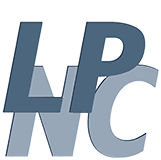- Share
- Share on Facebook
- Share on X
- Share on LinkedIn
Equipe Développement et Apprentissage, Research

Attentional control to speaking faces during word learning.
From 18 months, children acquire words at a remarkable nonlinear pace, a phenomenon called vocabulary burst. While this burst has been widely reported, the mechanisms underlying it remain unknown. I posit that one key mechanism behind it is the development of attentional control towards talking faces. Notably, the mouth region of talking faces provides redundant audiovisual cues: focusing on is a good strategy to better memorize the sounds contained in these words. Yet, attentional control is immature in young children. My first hypothesis is that the benefit provided by talking faces should emerge when attentional control is efficient enough to start a vocabulary burst. My second hypothesis is that atypical attention control towards talking faces derails vocabulary burst and causes the word learning difficulties observed in children with Developmental Language Disorders (DLD). In WP1, I use eye-tracking to measure how children attentional scanning to fully visible and masked talking faces teaching them new words, and how these scanning pattern have cascading effects on their word learning performances. I test these questions at the onset (12 months) and after different levels of improvement of their attentional control system (18 & 24 months). I also assess these questions in children with DLD (aged between 6 and 11 years of age) and TD children (aged-matched to children with DLD). In WP2, I devise computational models to tease apart the influence of attentional control mechanisms in participants’ exploration of talking faces and word learning trajectories, to identify the atypical/immature attentional mechanisms of word learning. This project presents critical theoretical, educational and clinical implications, but also tackles a question of public health relevance relative to the impact of face masks on language learning. In addition to its scientific merits, this JCJC provides a mechanism for launching my career to advance already thriving research programs.ttaquant au verrou scientifique des mécanismes cognitifs de l’apprentissage, ce projet favorisera ma prise de responsabilité et la construction de mon équipe de recherche.
Coordinator & Partners
Coordinator : Mathilde Fort
PhD : Jérémie Josse
Colleagues:
Joan Birulés
Louise Goupil
Julien Diard
Stephanie Bioulac
Beginning and duration of the scientific project: September 2022 - 48 Months
- Share
- Share on Facebook
- Share on X
- Share on LinkedIn
